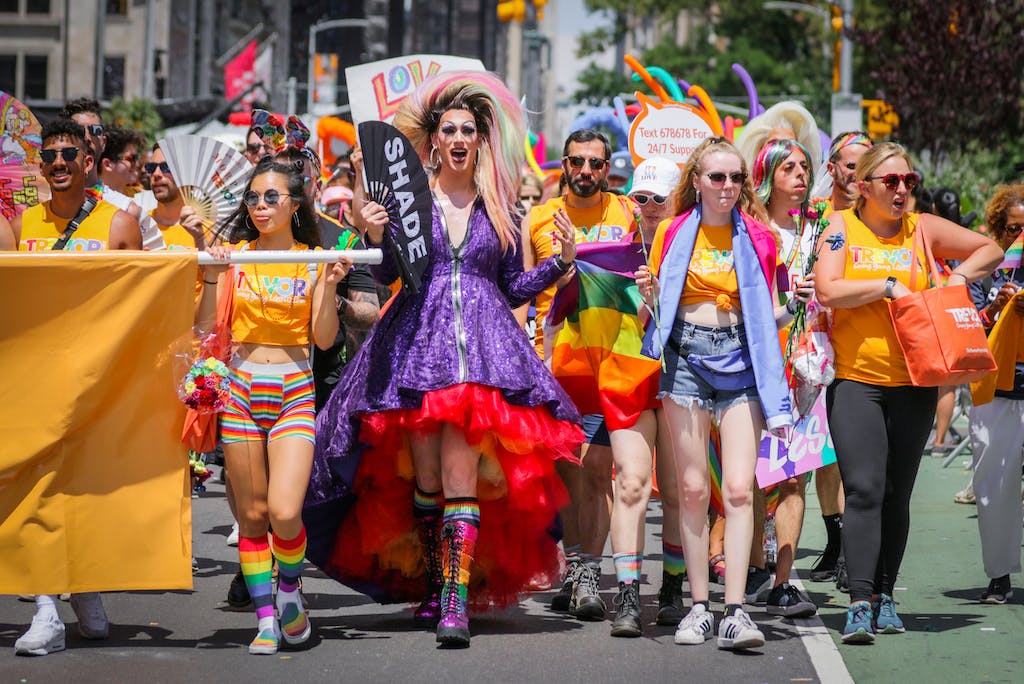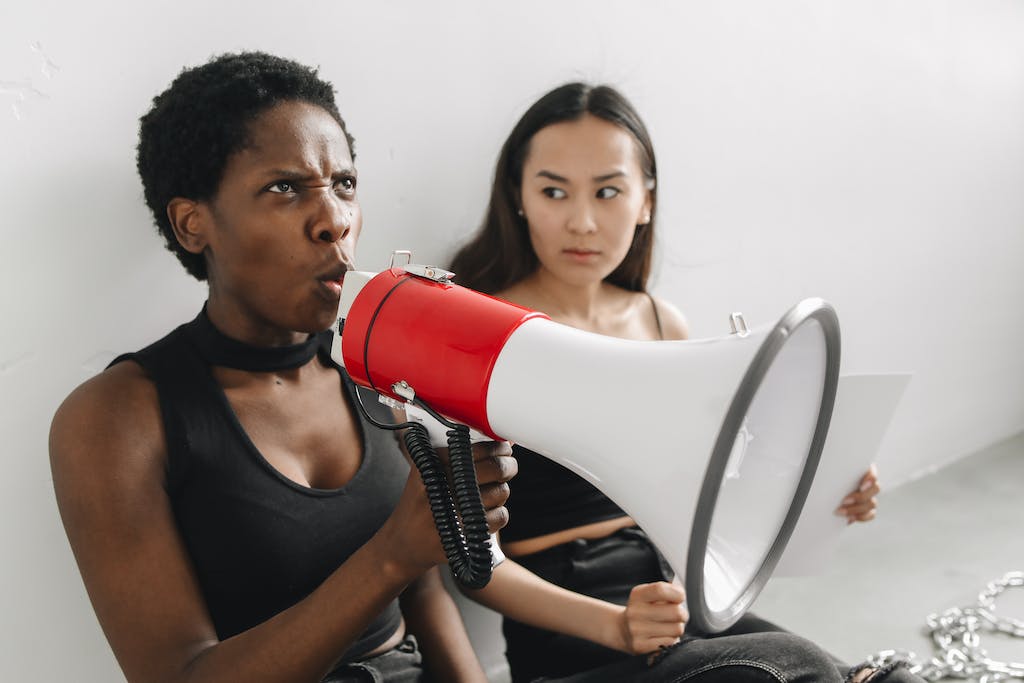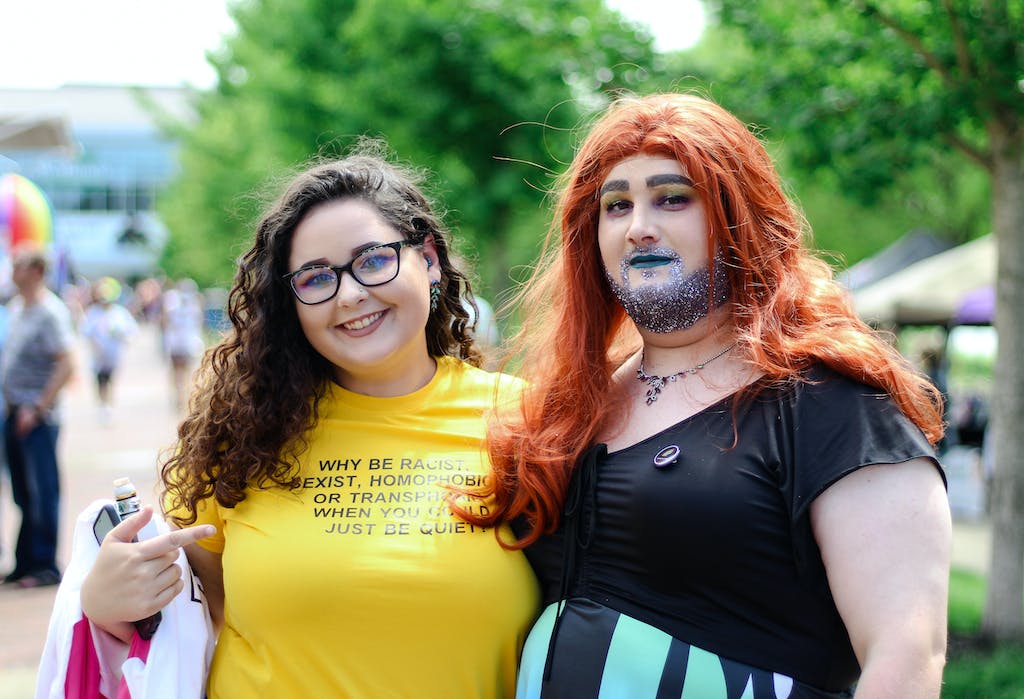The Legal and Human Rights Issues of Homosexuality in Different Countries

Table of Contents
Freedom of Expression: Examining the limitations placed on LGBTQ+ individuals and organizations regarding public advocacy and activism

The LGBTQ+ community has made significant strides towards achieving equality and acceptance in many parts of the world. However, when it comes to public advocacy and activism, there are still limitations placed on individuals and organizations that identify as LGBTQ+. These limitations can restrict their ability to express their views and fight for their rights, hindering progress towards a more inclusive society.
One of the main challenges faced by LGBTQ+ individuals and organizations is the legal framework surrounding public advocacy. In some countries, laws exist that criminalize same-sex relationships or label LGBTQ+ advocacy as “promotion of homosexuality.” These laws not only silence LGBTQ+ voices but also create an environment of fear and stigmatization. Such limitations not only restrict the freedom of expression of LGBTQ+ individuals but also impede their ability to mobilize support and effect change.
Moreover, social attitudes and cultural norms can further limit the ability of LGBTQ+ individuals and organizations to engage in public advocacy and activism. Homophobia, transphobia, and discrimination are still prevalent in many societies, leading to societal pushback against LGBTQ+ voices and activism. This can result in marginalization, harassment, and even violence towards those who dare to speak out.
It is important to recognize these limitations and work towards creating a society where all individuals, regardless of their sexual orientation or gender identity, can freely express themselves and advocate for their rights without fear of reprisal or persecution. This requires challenging discriminatory laws and changing societal attitudes through education, awareness campaigns, and dialogue. Only by ensuring the full protection of freedom of expression for LGBTQ+ individuals and organizations can we truly achieve equality and justice for all.
Conversion Therapy: Exploring the controversial practice of attempting to change a person’s sexual orientation or gender identity and its legal status worldwide

Conversion therapy is a highly controversial practice that aims to change a person’s sexual orientation or gender identity. Advocates of this therapy claim that it can be effective in helping individuals align their orientation or identity with societal norms. However, the overwhelming consensus among medical and mental health professionals is that conversion therapy is not only ineffective but also extremely harmful.
Numerous studies have shown that conversion therapy can lead to significant psychological distress, including depression, anxiety, and even suicidal thoughts among those who have undergone the treatment. Organizations such as the American Psychological Association, the World Health Organization, and the United Nations have condemned conversion therapy and called for its ban due to the serious harm it poses to individuals.
Despite the body of evidence pointing to the dangers and inefficiency of conversion therapy, its legal status varies across countries. Some countries, such as Germany, Brazil, and Malta, have banned the practice altogether. Others, like the United States, have implemented partial bans at the state level. It is critical for lawmakers and policymakers worldwide to prioritize the well-being and rights of LGBTQ+ individuals and take swift action to ban conversion therapy in all its forms.
Transgender Rights: Addressing the specific legal and human rights issues faced by transgender individuals within different countries

In many countries around the world, transgender individuals face specific legal and human rights issues that pose significant challenges to their well-being and equality. These issues vary from country to country, resulting in a complex landscape of rights and protections for transgender individuals. Understanding and addressing these issues is crucial to ensure that transgender people are afforded the same rights and opportunities as their cisgender counterparts.
One of the most pressing legal issues faced by transgender individuals is the lack of legal recognition for their gender identity. Many countries still require transgender individuals to undergo invasive procedures, such as surgeries or hormonal treatments, in order to legally change their gender marker or obtain accurate identification documents. This requirement can be burdensome, costly, and may not align with an individual’s personal journey or medical needs. It also perpetuates the idea that gender identity is solely determined by physical characteristics, rather than being an inherent aspect of self. This lack of legal recognition can have severe consequences, including difficulties in accessing healthcare, employment discrimination, and denial of basic rights and protections.
Moreover, transgender individuals often face significant barriers when it comes to healthcare access. This can include difficulties in finding knowledgeable and affirming healthcare providers, limited availability of gender-affirming treatments, and discrimination within healthcare systems. These barriers can lead to detrimental health outcomes and disproportionately affect the mental and physical well-being of transgender individuals. Additionally, the lack of comprehensive healthcare coverage for transgender-specific treatments, such as puberty blockers or gender confirmation surgeries, further hinders access to necessary care. Ensuring equitable access to healthcare for transgender individuals is crucial in promoting their overall health and well-being.
These are just a few examples of the legal and human rights issues that transgender individuals face in different countries. It is imperative that governments, civil society organizations, and international bodies work together to address these challenges and enact policies that protect and affirm the rights of transgender individuals. By adopting an inclusive and rights-based approach, societies can create environments that foster acceptance, equality, and dignity for all individuals, regardless of their gender identity.
This table summarizes key aspects of transgender rights:
| Aspect | Description |
|---|---|
| Legal Recognition and Protection | Transgender rights encompass legal recognition and protection for individuals whose gender identity differs from their assigned sex at birth. This includes the right to change legal documents (such as birth certificates, driver’s licenses, and passports) to reflect one’s gender identity, as well as protections against discrimination based on gender identity and expression in employment, housing, education, healthcare, and public accommodations. Laws and policies vary by country and jurisdiction, with some regions providing comprehensive legal protections for transgender individuals, while others lag behind in recognizing and safeguarding their rights. |
| Access to Gender-Affirming Healthcare | Transgender individuals have the right to access gender-affirming healthcare services that align with their gender identity and medical needs. This includes access to hormone therapy, gender-affirming surgeries (such as chest reconstruction or genital reconstruction), mental health support, and other medical interventions to alleviate gender dysphoria and affirm one’s gender identity. Ensuring affordable, inclusive, and culturally competent healthcare services is essential for promoting the health and well-being of transgender individuals and reducing health disparities within this population. |
| Protection from Discrimination and Violence | Transgender rights encompass protection from discrimination, harassment, and violence based on gender identity and expression. Transgender individuals face disproportionate rates of discrimination, bullying, harassment, and violence in various settings, including schools, workplaces, healthcare settings, and public spaces. Efforts to combat transphobia, raise awareness about transgender rights, and implement policies and programs to address discrimination and violence are essential for creating safer, more inclusive environments for transgender people to live, work, and thrive. |
| Inclusive Education and Employment Policies | Transgender rights include the right to access inclusive education and employment opportunities free from discrimination and bias. Educational institutions and workplaces should adopt policies and practices that affirm and support transgender students and employees, including the use of preferred names and pronouns, access to gender-neutral facilities, protection from bullying and harassment, and accommodations for transition-related needs. Inclusive policies promote educational attainment, economic stability, and social integration for transgender individuals, contributing to greater equality and opportunity for all. |
| Advocacy and Community Support | Transgender rights advocacy involves raising awareness, mobilizing support, and advocating for legal and social change to advance the rights and well-being of transgender individuals. Advocacy efforts may include grassroots organizing, lobbying for policy reforms, participating in public awareness campaigns, and providing resources and support to transgender communities. Community organizations, advocacy groups, and allies play vital roles in amplifying transgender voices, challenging stigma and discrimination, and promoting systemic change to create more inclusive and equitable societies for transgender people. |
| Recognition of Nonbinary and Genderqueer Identities | Transgender rights encompass recognition and affirmation of nonbinary and genderqueer identities, which exist outside the traditional binary understanding of gender. Nonbinary and genderqueer individuals may identify as neither exclusively male nor exclusively female, or they may fluctuate between different gender identities over time. Ensuring legal recognition, respect, and inclusion for nonbinary and genderqueer people is essential for upholding transgender rights and fostering diversity, acceptance, and equality within society. |
Asylum Seekers
Asylum seekers, individuals fleeing persecution or violence in their home countries, often face significant challenges when seeking refuge in new nations. The process of seeking asylum can be complex and arduous, requiring individuals to provide evidence of the well-founded fear of persecution based on factors such as their race, religion, nationality, political opinion, or membership in a particular social group.
Once an individual arrives in a host country, they typically undergo a rigorous vetting process to determine their eligibility for asylum. This process includes interviews, background checks, and the presentation of supporting documents. However, the determination of asylum claims can vary greatly from one country to another, with some nations having more restrictive policies than others. Consequently, the outcome of an asylum application can depend on a range of factors, including the specific country of asylum and the individual’s ability to effectively convey their need for protection.
Despite the challenges faced by asylum seekers, it is crucial for host countries to uphold their obligations under international law and ensure a fair and efficient asylum process. Providing protection to those in need not only demonstrates compassion and empathy but also contributes to the global effort to protect human rights and alleviate the suffering of vulnerable individuals. Moreover, the successful integration of asylum seekers into host societies can lead to economic, cultural, and social benefits for both the individuals themselves and the host nation as a whole.
In the next section, we will delve deeper into the specific legal, social, and economic considerations associated with the reception and integration of asylum seekers, exploring different countries’ approaches and highlighting best practices that promote inclusivity and mutual understanding. By examining the experiences of asylum seekers and the policies governing their stay, we can further our understanding of the complexities surrounding this issue and work towards creating more welcoming and supportive environments for those seeking refuge.
What is the legal definition of an asylum seeker?
An asylum seeker is a person who has fled their home country due to a well-founded fear of persecution based on their race, religion, nationality, political opinion, or membership in a particular social group.
Are LGBTQ+ individuals granted asylum based on their sexual orientation or gender identity?
Yes, some countries recognize persecution based on sexual orientation or gender identity as grounds for granting asylum. However, each country has its own policies and criteria for determining eligibility.
What limitations are placed on LGBTQ+ individuals and organizations regarding public advocacy and activism?
The limitations vary depending on the country. In some places, LGBTQ+ individuals and organizations may face restrictions or discrimination when it comes to expressing their views, organizing events, or advocating for LGBTQ+ rights.
What is conversion therapy?
Conversion therapy refers to practices that attempt to change a person’s sexual orientation or gender identity. It is often based on the false belief that being LGBTQ+ is a mental disorder that can be “cured.” These practices are widely discredited and considered harmful by professional medical and psychological organizations.
Is conversion therapy legal worldwide?
The legal status of conversion therapy varies across different countries. Some countries have banned or restricted the practice, recognizing it as harmful and in violation of human rights, while others have no specific laws addressing it.
What legal and human rights issues do transgender individuals face in different countries?
Transgender individuals face various legal and human rights issues depending on the country they live in. These may include difficulties in accessing healthcare, legal recognition of gender identity, discrimination in employment and public services, and violence or harassment based on their gender identity.
Can an individual seek asylum based on their gender identity or transgender status?
Yes, some countries recognize persecution based on gender identity or transgender status as grounds for granting asylum. However, the eligibility criteria and procedures may vary.
Are there international laws or treaties that protect the rights of asylum seekers?
Yes, there are several international laws and treaties that protect the rights of asylum seekers. The 1951 Refugee Convention and its 1967 Protocol are the most widely recognized instruments, establishing the rights and obligations of countries to protect and assist refugees.
How can individuals support and advocate for the rights of asylum seekers and LGBTQ+ individuals?
Individuals can support and advocate for the rights of asylum seekers and LGBTQ+ individuals by raising awareness, supporting organizations that provide assistance and advocacy, contacting policymakers to promote inclusive policies, and challenging discriminatory attitudes and practices in their communities.





